Where do good sounds come from and who makes them and how are they recorded? Questions we thought we should ask a professional in field recording: F?lix Blume, sound engineer for documentary films and Freesounder. Here is the full interview. by Kay Burki:
What is your Profession, how would you call yourself?
The usual name for my profession is “sound engineer”, and I work most of the time on documentary film shootings, sometimes for video-artists too. I like the word “Preneur de son” (in French) which means something like “sound catcher”.
Can you describe a typical work flow?
The good thing about independent documentary filming is, there is no “typical” configuration. If I try to describe the most usual work flow, it begins of course with the shooting, which involves only one person in the sound department. Most of the time, sound is recorded on a separate recorder, and synchronized with the image by timecode. During or after the shooting, rushes (raw material, KB) are synchronized, and the editing begins. Once ?it’s finished, it’s time for sound post-production: sound editing, sometimes some extra recordings of music or foleys (additional sound effects,KB) and later the sound mix. At the same time, they’re doing color correction or special effects, in order to make a final report on tape,? digital copies and in some good cases film copies are made for screenings, film festival contributions and TV broadcasting.
How did you come to your profession?
I came to sound through music, at first I wanted to do sound reinforcement for live music in concert. I studied and worked a bit in that way at the beginning, but I quickly found more interest in shootings and sound for video. I discovered at the same time a passion for documentary films.
What was your training for your profession, do you have a degree?
I studied 2 years in France, at an audiovisual school, with a technical formation (BTS Audiovisuel in Toulouse); after that, I studied 3 years at INSAS film school in Brussels, in the sound department.
What would you advice people who would like to do such work for a profession also?
I would say that it can be beautiful work, and a really good way to travel and meet people, but you first need to be passionate, to love sound, to be patient, curious and to be really specific in your choice. If you know what you want to do exactly, people will know what you’re able to do, and they will call you for their projects.
And the most important thing, as most of passion-works: you must do what you really like, and not search for money with that job!
What can you tell about the copyrights on recordings of yourself? At what time do you own the copyrights of a recording or someone else does (like a publisher or producer of a movie)?
Most of the contracts don’t specify anything about sound copyrights. For the pictures that’s clear though, the camera-operator doesn’t keep any pictures, and all the rights are owned by the producer and the director.
For sound, it’s different. I’ve got a copy of all the sound recording of each shooting I’ve done, and I made a lot of wild-tracks during the shootings, which can be seen as a still picture made by the camera operator (can he use it for himself or not? ).
I take the right to use and share all the wild-tracks, as long as they are not directly in relation to the subject (no music, no voices for example). If I’m not sure, I talk about that with the director and ask him his point of view… And since I share them for free, there’s no problem.
I think internet is a beautiful opportunity to share things, ideas, video and sounds. Unfortunately, most of the sharing platform are used by “pirates” to share things they don’t own.
Freesound.org is for people who want to share the sounds they do own, with anybody who would like to use it or need it for any other project. I like the idea and I try to put in the best sounds I have!
I add all the sound under Creative Commons 0 License, that means I share the sounds, for any use you want, without any need to mention me. I’ve recorded the sounds by myself, or on projects, and I think the best way to make this sound travel and exist is to share them.
The end of the copyrights? Maybe… And I’m not sure if that’s a bad thing !
I usually use (and own) a Sound Devices recorder 744T, a Sound Devices Mixer 552, a MS microphone setup with 2 Schoeps CCM41 (super cardioid polar pattern, KB) & CCM8 (figure 8 polar pattern, KB) in a Zephyx windscreen, a Sennheiser MKH8060 hypercardioid microphone in a rycote, 2 lectrosonics digital hybrid HF transmitter & receiver, some additional wireless Sennheiser Evolution sets (ew 100-ENG, KB) i.e. to send sound to the camera and director, some Sanken COS11D lavalier microphones (for the wireless sets),? some HD25 Sennheiser headphones and a PSC boom.
I do most of the sound with a MS setup. It’s a really good way to make good sound in documentary shooting!
I really like the one recorded in South Argentina, in a farm close to Ushuaia, during the “Patagonian Rodeo”.?Once a year, the farmers go in line through the fields and the forest, screaming and whistling, in order to send the sheep to the corner of the field, and take them to the farm for the sheep’s shave. They can’t see each other but can recognize themselves with their specific screams and keep in line.
I really like America and it’s big spaces (each time it is more difficult to find a place in Europe where you don’t hear cars far away). I work a lot in America Latina and I love the people there. Lately I worked a lot in Mexico, a beautiful country!
What other interests do you have?
I think human relationships are the most important thing… I love meeting new people, discover different lifestyles and listen to stories people tell me.
What is your next project?
I’m about to shoot a documentary in USA. We will stay in a small town close to a marine base. After their mission in Afghanistan, the marines stay there for a few weeks, to make a “debriefing”, re-adapt to “real” life, and try to forget about war. They’re hanging around and we will film their deambulation in the town…
Thank you F?lix Blume for your contributions to Freesound.org and for this Interview!
Everything is published with kind permission!

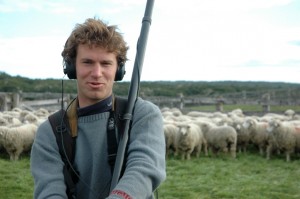
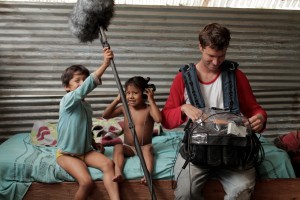
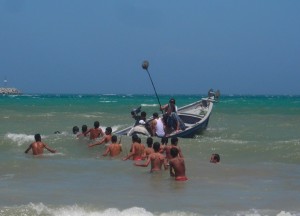
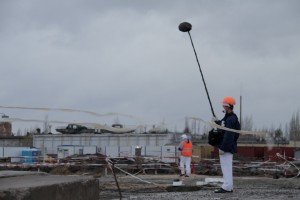
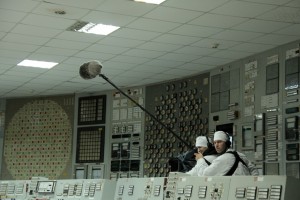
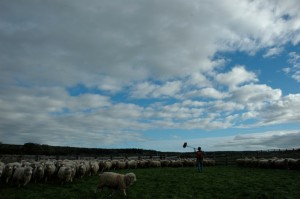
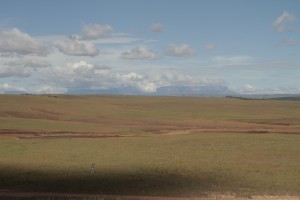
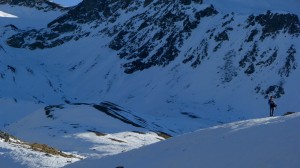
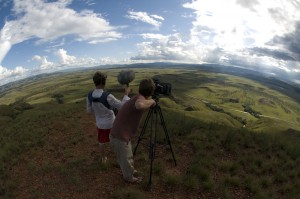
How nice! Coincidentally, I had been listening recently to many of Felix Blume’s sounds that he has posted here and was enormously impressed with their quality and variety, they are indeed quite magical and awe inspiring. Very nice to learn the background of his sounds. Well done!
Heyyy!!!! Yo soy de Argentina!!! Felix, no quise usar el traductor de Google para no parecer Tarzan… Estoy comenzando a experimentar con los sonidos, hace poco tiempo adquir? un H4n para grabar algunos sonidos para mis propios videos. Me gustar?a conocer mas de tu carrera y tu trabajo.
Un gran abrazo a todos por aqu? (excelente la nota)
Hola Liban,
Me das tu mail asi t puedo escribir directo, mas facil?
And Thanks Benjamin for your comment!
Felix
Nice short video about what foley sounds and artist are and do:
http://www.youtube.com/watch?v=UNvKhe2npMM
How nice this pic in the mountains! We’d love to work with a “sound catcher” who can deal so well with the immensity of the landscape. Let us know if you’re interested in a project about a secret language in the swiss Alps,
all the best,
Earthling productions
Read this and just listened to about 30 of his sounds. They have that extra crispness, sound great. Nice post.
Interesting! Thanks for the post.
I was wondering – do ‘sound catchers’ always have to hold the mic up themselves? Aren’t there stands they can use for the boom mics so that they don’t have to tire their arms/hands out?
Hi Ansaa Baiju, Hi Pat,
Thanks for your comments and the interest you have in sounds!
The use of a stand for the boom can be an option, but it’s quite difficult to move the mic, or to follow an action… so you could carry a stand for the “wild sound” (when you’re recording a sound without the video) and a boom for the other case, but I prefer the boom in anycase, so you don’t have to carry so much equipment.
If you have any question, just contact me by mail on felix.blume@gmail.com
Felix
Hey what a sweet configuration ) 12-13 kilodollars))
Where i can find the movies you worked on ?
How long did it take to get where you are now?
It’s awfully itresting how the things with the employment works for you (you’re from somewhere Europe as far as i understand).
Do you recieve the invitations to the project mostly from the people you know or is there some kind of a middleman-type organization?
How difficult to get a job as sound engineer? i’m from russia and it’s pretty difficult here right now, not so many vacant places but a great deal of unemployed boom-operators and etc.
Have u got any expirience in TV-shows or NOT documental filmmaking? do they work 12-16 or sometimes 20 hours and 6 or 7 days a week as we do here))) ?
Eat. Sleep. Film (i guess you know what i’m talking about=] )
It will be veryvery kind of you to anwser.
Or may be it’ll be ok if i email you ?
Anyway thank you for the interesting and inspiring interview and great sounds of course!
Looking forward to connect)